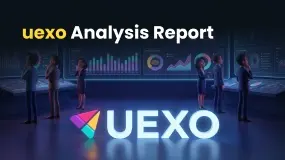Abstract:Analysts and operators have emphasized the need for banks to enhance lending to small and medium companies (SMEs) to avoid revenue erosion as banks' provision for loan losses continues to climb, based on data reported by financial institutions on the Nigerian Exchange Limited (NGX).

Analysts and operators have emphasized the need for banks to enhance lending to small and medium companies (SMEs) to avoid revenue erosion as banks' provision for loan losses continues to climb, based on data reported by financial institutions on the Nigerian Exchange Limited (NGX).
Furthermore, they recommended banks to expand into financial advising services such as fund management and real estate management in order to increase profitability.
According to the experts, commercial banks should cease chasing a few big-ticket enterprises and instead focus on giving loans and advances to small businesses in order to keep their non-performing loans (NPLs) under control.
According to them, if banks are unable to generate additional sources of income inside the system, the increase in the sector's necessary Cash Reserve Ratio (CRR) would continue to cause an increase in NPL ratio, particularly for those without a framework to manage risks associated with large loans.
They contended that because these charges account for a significant amount of banks' revenue, failing to find other ways to supplement the adjustments will have a detrimental influence on them in the future.
Furthermore, the stakeholders worried that the tendency might reduce banks' present profit levels, hence reducing dividend payouts to equity investors.
Access Bank Plc's and eight other banks' provision for loan losses grew by 0.17 percent at the end of the fiscal year 2021.
According to them, if banks are unable to generate additional sources of income inside the system, the increase in the sector's necessary Cash Reserve Ratio (CRR) would continue to cause an increase in NPL ratio, particularly for those without a framework to manage risks associated with large loans.
They contended that because these charges account for a significant amount of banks' revenue, failing to find other ways to supplement the adjustments will have a detrimental influence on them in the future.
Furthermore, the stakeholders worried that the tendency might reduce banks' present profit levels, hence reducing dividend payouts to equity investors.
Access Bank Plc's and eight other banks' provision for loan losses grew by 0.17 percent at the end of the fiscal year 2021.
Provision for loan losses, also known as impairment charges, is the write-off of worthless goodwill, which refers to assets that have lost value.
In particular, the audited figures indicated that nine banks reported a total of N199.45 billion in impairment charges, compared to N199.11 billion in the same time in 2020.
“Globally, banks make money by lending, but in the Nigerian context, they do not lend because they have the choice of buying government bills and bonds and getting a double-digit return that is also risk-free,” said Amaechi Egbo, an independent investor.
“As long as that choice is available, they will choose to play it.” They are pursuing only a few firms, and they are willing to provide whatever major corporations decide to raise. However, they do not invest in rising businesses.
“If you nurture these future enterprises, they may grow into large firms, and we need to recognize that, especially now that some are tax-exempt.” Banks must go down and nurture these expanding enterprises, and if they do, the banks will flourish.
“Another concern is that they must be in financial services.” Banks can provide a wide range of financial services, including fund management, consulting services, and estate administration. They can make more money if they get into it.
Ambrose Omordion, Chief Research Officer of Investdata Consulting, also commented, saying that banks may create more money under a liquidity constraint by increasing their loans and advances.
“Banks earn money via fees and commissions, forex trading profits, and currency revaluation gains, among other things.” The CBN, on the other hand, is committed to stimulate economic activity by pushing banks to expand lending to the real sector while decreasing their investments in government securities. Banks are supposed to produce the majority of their revenue through interest income. This can only expand if they raise their consumer loans and advances.
“As the banking industry is highly regulated, other revenue streams are restricted, necessitating the necessity for banks to expand their loan book.”
He said that some banks' charges account for more than 20% of their overall income at the conclusion of each fiscal year.
“These reductions from the initial amount will have an immediate impact on bank income.” For the banks, the reduction is considerable. Previously, these costs were included in the banks' earnings.
“If they are unable to find alternative ways to supplement these expenses, it may have an impact on their bottom line and profitability.”
He stated that the CBN's Loan-to-Deposit Ratio (LDR) policy is intended to encourage banks to fulfill their historic role of lending to produce money as the engine room of the nation's economic development by providing credit to the private sector.
“This is also projected to boost economic productivity, which fuels growth and development.” This productivity, on the other hand, is predicted to increase the macroeconomy as well as the banks' total profitability and performance.










